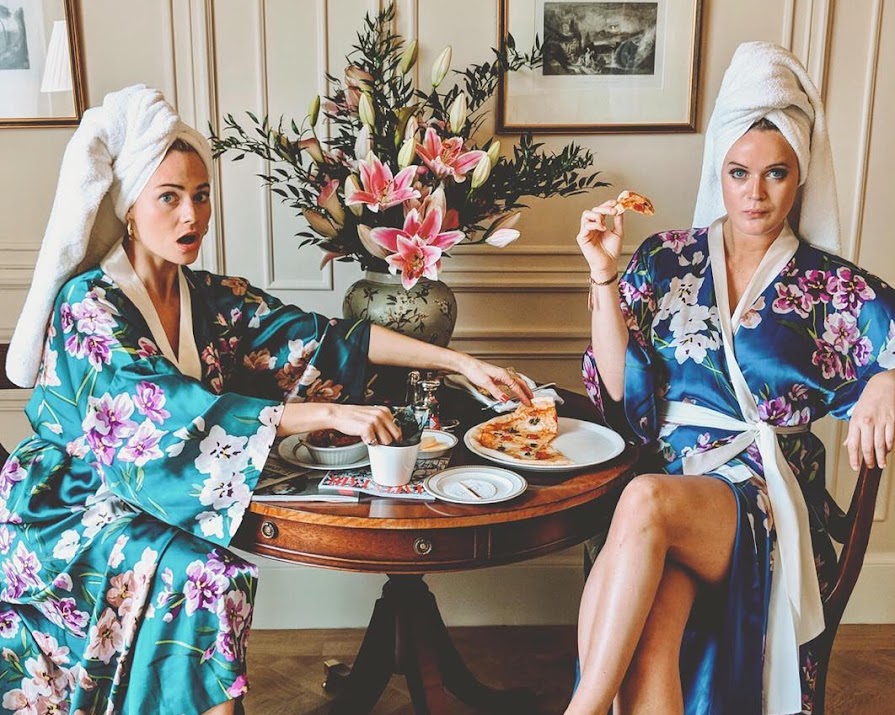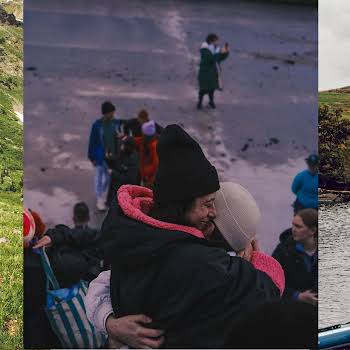
By Niamh ODonoghue
08th Apr 2018
08th Apr 2018
It feels like we are living in a golden age of female friendship (case in point, Pandora Sykes and Dolly Alderton as seen above). Until very recently though, I seemed to fall in and out of friendships at an alarming rate and after much self-discovery, I’ve realised that the sinking ship is not only my fault.
As an impressionable adolescent, I believed that friendship was a sturdy, unchanging structure. In reality though – this is something that I’m still getting to grips with – friendships are fluid and fragile and require an abundance of care and emotional nourishment in order to thrive. They involve a give-and-take exchange of ideas and emotions: though this realisation hasn’t come without tears and deciphering every message, tweet, Facebook status and email.
If you’ve recently experienced the same heartstring tug from failed friendships these four lessons should see you through the dark spell. And if you haven’t found your people yet, keep looking. Don’t give up until you find them. Chances are, the right ones will be looking for you, too.
Friendships require more than ‘liking’ each others Insta photos
Social media has created an environment where friendships can be discovered and nourished. While there’s nothing wrong with having digital friendships or even old-school penpals, it’s important to remember that some friendships require human interaction and late night glasses of wine.
On the back of that, there needs to be a real connection
By the time I hit my late teens the pre-adolescent euphoric ideas of friendship had left me feeling completely lost. Physically, I was always surrounded by plenty of peers but mentally I found little or no connection with them. I often felt a sense of displacement, un-relatability, and loneliness. Having meaningful and understanding relationships help you maintain a positive outlook and helps you stave off feelings of depression, anxiety and anger and, according to Medical Daily, developing meaningful relationships is probably the healthiest thing you’ll do in your life. As I hit my twenties, all of my relationships were changing – with my parents, peers, siblings, even teachers. Peership and friendships built on weak foundations changed to ones based on honesty, loyalty, mutual respect, happiness, and love.
We assume we’ll be in one another’s lives forever
When we meet someone who sparks that fire inside, we try and hold on for eternity. The thing about life is it’s transitory and the relationships we create are often fleeting. Friedrich Nietzsche’s notion of a ‘star friendship’ is a useful way of thinking about the end of a friendship:
“we are two ships each of which has its goal and course; our paths may cross and we may celebrate a feast together, as we did—and then the good ships rested so quietly in one harbor and one sunshine that it may have looked as if they had reached their goal and as if they had one goal. Perhaps we shall never see one another again,—perhaps we shall meet again but fail to recognize each other: our exposure to different seas and suns has changed us!”.
Next time you find yourself at the end of a friendship, think of it as a shining star that you one-day might meet again.
An ending friendship is a grieving endurance
Loss of friendship is frightening and sad, and can be similar to the experience of grieving a death. This year saw the end of life-long friendships (with some minor resistance on my part) and the creation of new ones. I clung to those failing friendships and it took me a long time to realise that people outgrow one another. Once the cut is made it can be even harder to re-sew the seeds. One thing that helped me was writing a letter to those friends but never actually sending it. It was the therapy I needed to lift the weight of grief off my shoulders. These 5 steps to healing post-friendship were also hugely helpful.
Now that I’m in my twenties I can start to fully understand the true meaning the word friendship. I’m learning the difference between being alone and loneliness, and that you can surround yourself with groups of people and still feel like the most isolated person on the planet. I now realise that as we grow, it’s okay to be picky-and-choosy about how we spend our time, and who we spend it with. I won’t have a connection with every person I meet and not everyone I meet will like me. When that connection does happen, it will be deep, meaningful, and lasting.






















